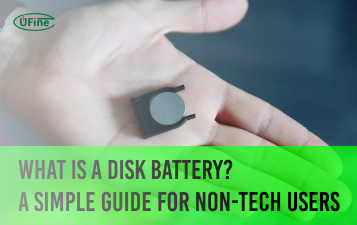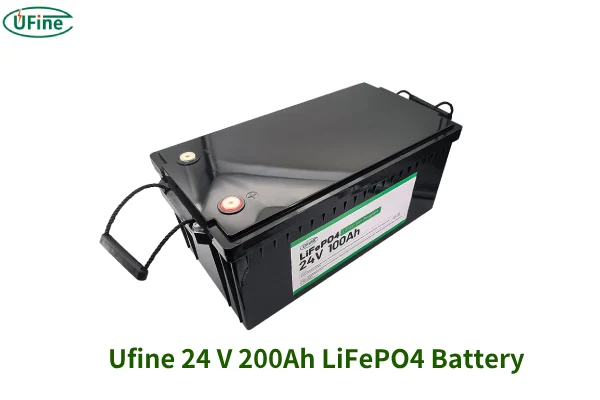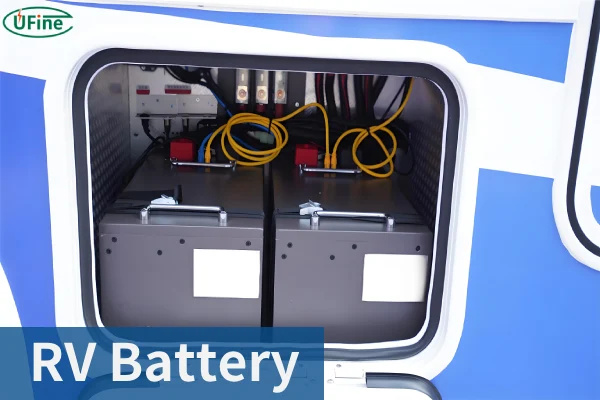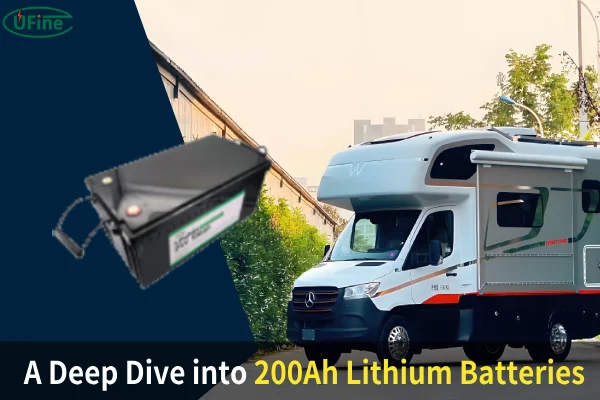Lithium batteries have revolutionized energy storage, offering a powerful and versatile solution for a wide range of applications. Among these, the 200Ah lithium battery stands out as a particularly potent option, capable of delivering high energy capacity and long-lasting performance. This comprehensive guide will delve into the world of 200Ah lithium batteries, providing a detailed exploration of their characteristics, advantages, applications, and considerations for purchase.
Part 1. Understanding the 200Ah lithium battery
A 200Ah lithium battery is a type of rechargeable battery that utilizes lithium-ion chemistry, a technology known for its high energy density and efficient energy storage. The “200Ah” designation refers to its capacity, indicating that it can deliver a current of 200 amperes for one hour. This high capacity makes it ideal for powering devices and systems that require sustained energy output.
The Chemistry of Power: Lithium-Ion Technology Explained
At the heart of a 200Ah lithium battery lies lithium-ion chemistry. This technology involves the movement of lithium ions between a positive electrode (cathode) and a negative electrode (anode) within the battery cell. During discharge, lithium ions flow from the anode to the cathode, generating an electric current. During charging, the process reverses, with lithium ions moving back to the anode.
The Structure of a 200Ah Lithium Battery: Cells Working in Harmony
A 200Ah lithium battery typically consists of multiple individual cells connected in series and/or parallel to achieve the desired voltage and capacity. Each cell contains a cathode, anode, and electrolyte, which facilitates the movement of lithium ions. The arrangement of cells determines the overall battery’s performance characteristics.
Part 2. Pros and cons
Pros
200Ah lithium batteries offer a compelling combination of advantages, making them a preferred choice for various applications.
1. High Energy Density: Power Packed into a Compact Size
One of the most significant advantages of 200Ah lithium batteries is their high energy density. This means they can store a large amount of energy in a relatively small space. This compact size makes them ideal for applications where space is limited, such as in electric vehicles, solar energy systems, and portable power packs.
2. Lightweight Design: Ease of Handling and Installation
Compared to traditional lead-acid batteries, 200Ah lithium batteries are significantly lighter. This lighter weight makes them easier to handle, transport, and install, particularly in applications where weight is a critical factor, such as in boats, RVs, and off-grid systems.
3. Long Lifespan: Thousands of Charge Cycles for Enduring Performance
200Ah lithium batteries are known for their exceptional lifespan, capable of enduring thousands of charge cycles before their capacity significantly degrades. This long lifespan translates into lower maintenance costs and a longer service life, making them a cost-effective choice over the long term.
4. Minimal Maintenance: Effortless Operation for Peace of Mind
Lithium batteries require minimal maintenance compared to other battery types, such as lead-acid batteries. They don’t need regular topping off with water or electrolyte, simplifying their operation and reducing the need for frequent checks.
5. Fast Charging Capabilities: Quick Recharge for Enhanced Convenience
200Ah lithium batteries can charge faster than traditional lead-acid batteries, significantly reducing the time required to replenish their energy. This fast charging capability is a major advantage in applications where quick turnaround times are essential, such as in electric vehicles and emergency power systems.
Cons
While 200Ah lithium batteries offer numerous advantages, there are a few potential drawbacks to consider.
1. Higher Initial Cost: A Premium Investment for Long-Term Savings
200Ah lithium batteries typically have a higher initial cost compared to other battery types, such as lead-acid batteries. However, their longer lifespan and lower maintenance requirements can offset this initial investment over time, making them a cost-effective choice in the long run.
2. Temperature Sensitivity: Optimizing Performance in Various Environments
Lithium batteries are sensitive to extreme temperatures, with their performance degrading in very hot or very cold environments. It’s crucial to operate 200Ah lithium batteries within their recommended temperature range to ensure optimal performance and lifespan.
3. Complexity in Charging and Management: Specialized Systems for Optimal Operation
200Ah lithium batteries require specific chargers and battery management systems to ensure safe and efficient charging and operation. These systems are designed to protect the battery from overcharging, over-discharging, and other potential hazards, ensuring its longevity and performance.
Part 3. Common voltages and applications
200Ah lithium batteries are available in various voltage configurations, each suited for specific applications.
12V: Powering RVs, Boats, and Solar Systems
12V 200Ah lithium batteries are commonly used in recreational vehicles (RVs), boats, and off-grid solar energy systems. They provide reliable power for essential appliances, lighting, and electronic devices, offering a convenient and efficient energy source.
24V: Supporting Small Electric Vehicles and Backup Systems
24V 200Ah lithium batteries are often used in small electric vehicles, such as golf carts and utility vehicles, as well as in backup power systems for homes and businesses. Their higher voltage provides greater power output for these applications.
48V: Fueling Larger Electric Vehicles and Energy Storage Systems
48V 200Ah lithium batteries are increasingly used in larger electric vehicles, such as buses and trucks, as well as in large-scale energy storage systems. Their high voltage and capacity make them suitable for powering these demanding applications.
Part 4. Buying a 200Ah lithium battery: Key parameters to consider
When purchasing a 200Ah lithium battery, it’s essential to consider several key parameters to ensure you choose the right battery for your needs.
1. Voltage Compatibility: Matching the Battery to Your Device
The first and foremost consideration is voltage compatibility. Ensure that the battery’s voltage matches the voltage requirements of your device or system. Using a battery with the wrong voltage can damage your device or system and may even be unsafe.
2. Cycle Life: Measuring the Battery’s Endurance
Cycle life refers to the number of charge-discharge cycles a battery can endure before its capacity significantly degrades. Look for a battery with a high cycle life, especially if you plan to use it frequently or in demanding applications.
3. Weight: Balancing Power and Portability
Weight is an important factor, particularly in applications where portability is essential, such as in boats, RVs, and portable power packs. Choose a battery with a weight that you can comfortably handle and install.
4. Size: Ensuring a Perfect Fit for Your Space
The size of the battery is crucial, especially in applications where space is limited. Ensure that the battery fits comfortably in your designated space, allowing for proper ventilation and installation.
5. Charge Time: Optimizing Recharge Speed for Convenience
Charge time refers to the time it takes to fully charge the battery. Look for a battery with a fast charge time, especially if you need to recharge it frequently or in a hurry.
6. Discharge Rate: Determining the Battery’s Power Delivery
Discharge rate refers to the rate at which the battery can deliver power. A higher discharge rate indicates that the battery can provide more power quickly, which is essential for applications that require high-power bursts, such as electric vehicles and power tools.
7. Warranty: Protecting Your Investment with Assurance
A warranty provides peace of mind and protection for your investment. Look for a battery with a comprehensive warranty that covers defects in materials and workmanship, ensuring that you’re protected in case of any issues.
Part 5. Charger
Using the right charger is crucial for the safe and efficient operation of a 200Ah lithium battery. Lithium-specific chargers are designed to match the battery’s chemistry, ensuring proper charging protocols and protecting the battery from overcharging or damage.
Part 6. Price
The price of 200Ah lithium batteries can vary depending on the brand, specifications, and features. Prices typically range from $500 to $1500, with higher-performance batteries and those with additional features commanding a higher price.
Part 7. Trusted brands
Several reputable brands manufacture high-quality 200Ah lithium batteries. Here are a few trusted brands to consider:
-
Battle Born: Known for their high-performance batteries and excellent customer service.
-
Renogy: A leading provider of solar energy solutions, including lithium batteries.
-
Victron Energy: A global leader in energy storage solutions, offering a wide range of lithium batteries.
-
AIMS Power: A reputable manufacturer of power inverters and lithium batteries.
-
Ufine Battery: A Chinese manufacturer specializing in customized lithium-ion batteries, including LiFePO4 and high-temperature batteries.
Part 8. Manufacturer
Ufine Battery stands out as a prominent Chinese manufacturer. They specialize in customizing lithium-ion, lithium polymer, cylindrical, high-temperature, low-temperature, and LiFePO4 batteries. Their flexibility in design and production allows them to cater to specific needs, providing solutions across different sizes, voltages, capacities, and shapes.
Part 9. Conclusion
200Ah lithium batteries offer a powerful and versatile solution for a wide range of energy storage needs. By understanding their features, advantages, and key parameters, you can make an informed decision when choosing the right battery for your application. Whether you’re powering an RV, an electric vehicle, or a solar energy system, 200Ah lithium batteries provide reliable, efficient, and long-lasting performance, empowering your energy needs with advanced technology.
Related Tags:
More Articles

What Is a Disk Battery? A Simple Guide for Non-Tech Users
A disk battery is a small, round cell used in watches, remotes, and other electronic devices. It delivers steady power for compact, low-drain devices.
What Battery Powers a Space Heater?
Discover the type of battery that powers space heaters and learn how to choose the right one for efficient heating in your home or office.
What Is an LR14 Battery? Learn About This C-Size Cell
The LR14 battery, also known as a C battery, delivers steady power. Learn its specs, uses, lifespan, and how it compares to other battery types.
Watch Battery Dimensions Chart: Sizes, Voltages, and Equivalents Explained
Understanding watch battery dimensions helps you choose the right size, voltage, and equivalent model to keep your watch running safely and smoothly.
How Long Can You Rely on Battery-Powered Generators?
Discover battery generator runtime & lifespan factors. Learn how to maximize performance and choose the right power solution.






